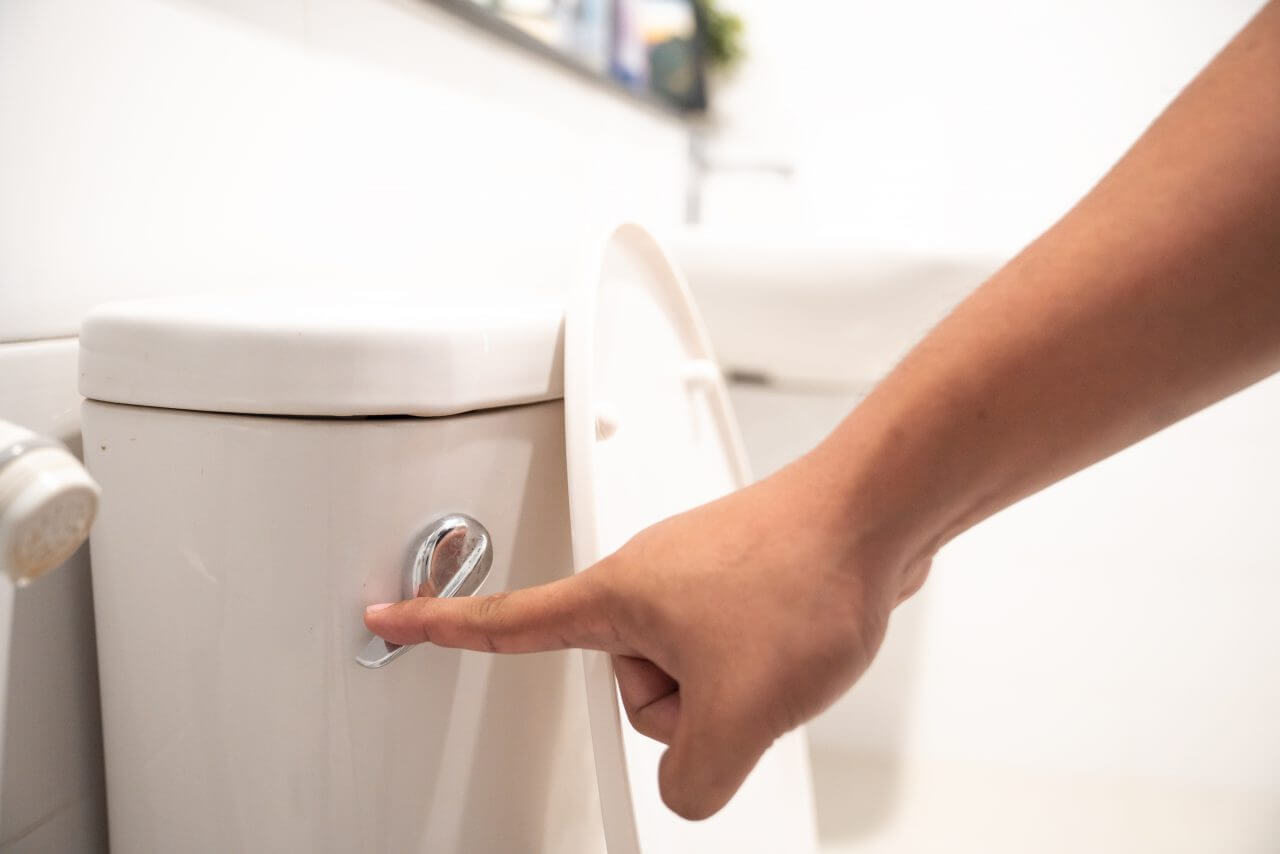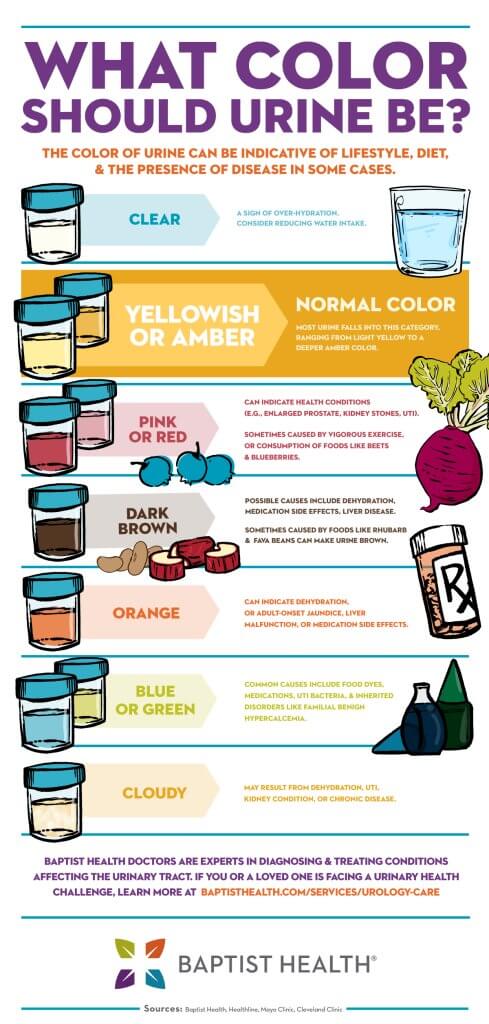Do you have additional questions?
See a Baptist Health Provider

The color of your urine (what doctors call “urochrome”) tells an important story. It can be indicative of your lifestyle, diet, and, in some cases, the presence of disease.
Urine is 95% water. The remaining 5% is a complex mix of components that includes:
The most common color of urine is yellow. Urobilin, a biochemical waste product your body creates as it breaks down old red blood cells, causes the various shades.
You should contact your doctor if you have questions or concerns about the color of your urine. For example, some people wonder, “What color is urine when your kidneys are failing?” Or, “What does healthy pee look like?”
The information below can help you understand what may be influencing the color.

Clear urine is a sign that you’re over-hydrated. Staying hydrated is good for you, but drinking too much water can flush out electrolytes. While clear urine isn’t something to worry about, you should probably consider reducing your water intake.
Most urine color falls into this category, ranging from light yellow to a deeper amber color. The urochrome pigment naturally in your urine becomes diluted when you drink water.
Urochrome results from your body breaking down hemoglobin, the protein that carries oxygen in your cells. If you have a significant amount of B-vitamins in your bloodstream, your urine can appear neon yellow.
If your urine appears pink or red, it might be due to something you ate. Fruits with naturally deep pink or magenta pigments, such as beets, blueberries, and rhubarb, can make your urine turn pink or red. However, other things can change your urine to this color. For example, vigorous exercise may produce urinary bleeding.
Certain health conditions can also cause blood to appear in your urine, a symptom known as hematuria. Some of these conditions include an enlarged prostate, urinary tract infection, kidney stones, and tumors in the bladder or kidney.
If you’re concerned about blood in your urine and haven’t eaten any of the foods mentioned above or recently completed an intense workout, you should call your doctor.
See a Baptist Health Provider
In most cases, dehydration causes dark brown urine. But certain medications, such as metronidazole, and chloroquine, can also cause it.
Specific foods eaten in large amounts, such as rhubarb, aloe, or fava beans, can also result in dark brown urine. In addition, liver disease can cause dark brown urine due to bile getting into the urine.
Orange urine can be a sign of dehydration. Orange urine can also be a side effect of certain medications, such as the anti-inflammatory drug sulfasalazine, some laxatives, and certain chemotherapy drugs.
If you have orange urine and light-colored stools, it could be a sign of liver or bile duct malfunction. Adult-onset jaundice can also turn urine orange.
Blue or green urine can be caused by:
Cloudy urine may result from dehydration, but it can also be a sign of urinary tract infection or other chronic diseases and kidney conditions.
Another common question is, “Is foaming pee bad?” The answer is that cloudy urine with foam or bubbles may be a symptom of serious health conditions, like Crohn’s disease or diverticulitis. It’s something you should talk with your doctor about.
Baptist Health doctors are experts in diagnosing and treating conditions affecting the urinary tract. If you or a loved one is facing a urinary health challenge, learn more about our urology care services.